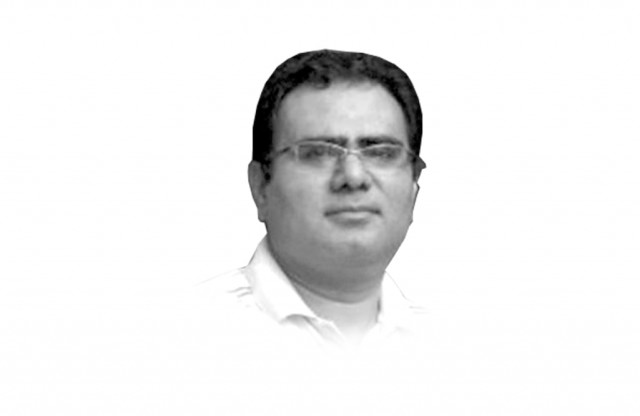Need for social protection in Tharparkar
There is no harm in making social protection less fragmented in development policy, create separate fund to finance it

Need for social protection in Tharparkar
There is no denying the fact that Pakistan does not allocate and spend on social protection even during the years when its economy boomingly runs well without falling faint and flat. There are numerous reasons behind this. To name a few, one reason is historical and grounded more in the post-colonial administrative apparatus of this country which does not see rulers as an extension of the common people. The state appears to be distinct from society and works in silos. If at all, the state engenders more of elite protection mechanisms than of universal social protection.
The other reason falls in the domain of governance. Even if we forget our colonial past, the system of governance does not really consider social protection and promotion as primary responsibilities of the state and, therefore, does not make serious fiscal effort to collect enough taxes to fund social protection. A recent Asia-Pacific Social Survey 2014 argues that countries in this region need to raise their tax-to-GDP ratios to 20 per cent from the current single-digit ratios in order to respectably finance their social development goals and to provide better and enjoyable lives for their citizens.
Sadly, in the case of Pakistan, much is left to international development agencies and private charities to finance social protection programmes. The primary reason behind this deliberate avoidance and delegation is the unfettered belief in the ‘trickle down’ model of growth. In this model, social protection is a residual function of the state, not the primary responsibility towards its citizens. Thus, the state need not to have a consistent approach to social protection but can work as a pain-reliever when and where needed. However, the development world around us has now realised that the state must assume primary responsibility of social protection and that societies which have better social protection and promotion programmes are happier than others. It has realised that social protection policies, especially of the employment-based protection genre, create national wealth and growth as well. Social economist Naila Kabeer calls this a generative model of social protection. Pakistan desperately needs this model to be in place and working. Let us not forget that the Human Development Report 2014 also argues for reducing vulnerabilities and building resilience which require “stronger social protection”.
Coming back to Tharparkar, the state has to realise that the areas which are consistently showing lower levels of human development index (HDI) need special attention for social protection and promotion programmes. Both the federal and provincial governments, can think of immediately starting employment-based conditional cash-for-work programmes which inject better community infrastructure and generate economic activity. These programmes can take a lifecycle and integrated approach targeting different social groups such as youth, women, children and the elderly with different types of programmes.
There is no harm in making social protection less fragmented in development policy and create a separate fund to finance it. The question is: do we have the will to do this and make our society inclusive and happier?
Published in The Express Tribune, December 5th, 2014.
Like Opinion & Editorial on Facebook, follow @ETOpEd on Twitter to receive all updates on all our daily pieces.
















COMMENTS
Comments are moderated and generally will be posted if they are on-topic and not abusive.
For more information, please see our Comments FAQ